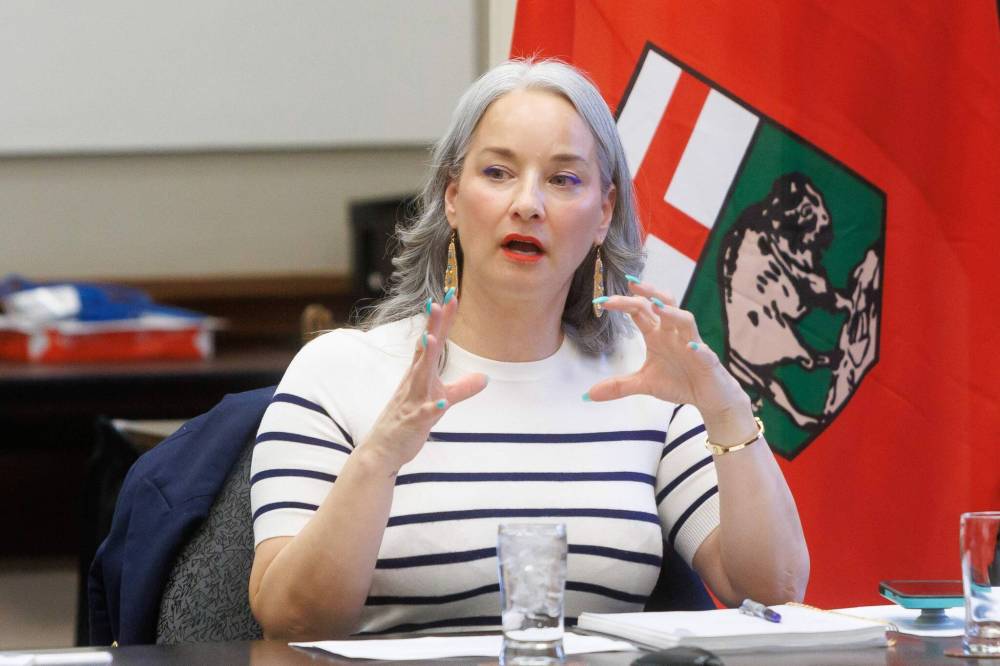Manitoba is a step closer to getting information about hotel guests into the hands of police more quickly when investigating cases of suspected human trafficking.
Nahanni Fontaine, the minister responsible for women, said Manitobans are being given a chance to give feedback for the next 45 days on proposed changes to the regulation under the Hospitality Sector Customer Registry Act.
“We are taking a proactive, co-ordinated approach to protecting some of our most vulnerable citizens from sexual exploitation,” Fontaine said in a statement.

MIKE DEAL / FREE PRESS FILES
Nahanni Fontaine, the minister responsible for women, said Manitobans are being given a chance to give feedback for the next 45 days on proposed changes to the regulation.
“By working across government departments and in the community, we can make sure we have policies in place for the people who need them to stay safe.”
The consultation period ends June 14.
While it’s estimated 400 children are exploited into the sex trade in Manitoba annually, both the provincial children’s advocate office and the Canadian Centre for Child Protection have said the number is likely higher.
The proposed regulation, introduced in 2022, would give police power to acquire information about a hotel guest without having to apply for a warrant in cases where officers feel a person who is being sexually exploited is “believed to be at risk of serious injury or death.”
It would require hotel operators and online accommodation platforms to collect certain information from guests, including the start and planned end date of the customer’s stay and the number of guests staying there.
It would also require the collection of personal information, including either a current government-issued photo identification or any two other identification cards that have either the customer’s name and address, name and birthdate, or show they have a credit card or a bank account.
They would have to update the registry if the guest left earlier or later than booked.
As well, the hotels and other temporary accommodation establishments would have to keep the information for at least seven years, starting from the day the guest was registered.
Janet Campbell, president and CEO of the Joy Smith Foundation, which fights against human trafficking, said it supports the legislation.
“It is important we have knowledge about who is in these rooms,” Campbell said.
“We see so many of these cases taking place at hotels and short-term rentals. It is important for this to be in place so people can’t be anonymous.”
Michael Juce, president and CEO of the Manitoba Hotel Association, said since the legislation was introduced by the former Tory government, he hasn’t received pushback from its members.
“Kudos to the provincial government for this,” Juce said.
“Police would get access to some of these records without getting a court order. These registrations will be kept at every hotel and police will be able to access it quicker. This regulation is helpful, but we also look to give education tools to our members.
“Anything we can do to help we will do. This is a big global complex issue.”
Feedback can be submitted at wfp.to/yOg.
kevin.rollason@freepress.mb.ca

Kevin Rollason
Reporter
Kevin Rollason is one of the more versatile reporters at the Winnipeg Free Press. Whether it is covering city hall, the law courts, or general reporting, Rollason can be counted on to not only answer the 5 Ws — Who, What, When, Where and Why — but to do it in an interesting and accessible way for readers.